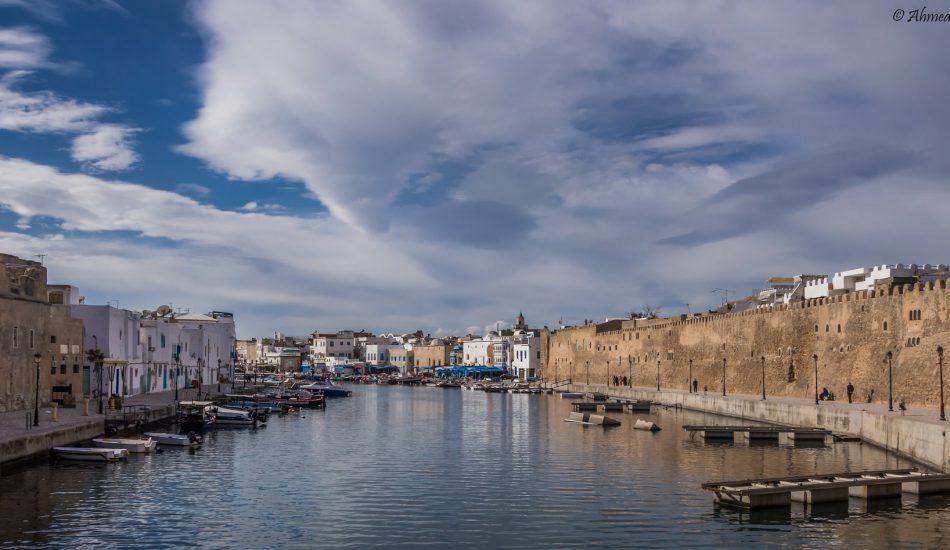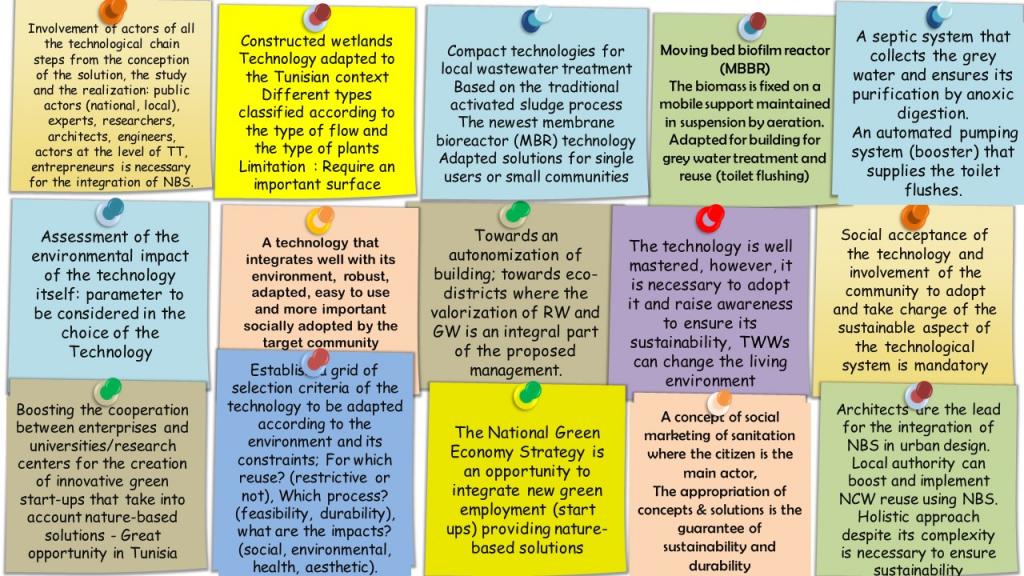NAWAMED: social acceptance, cooperation and holistic approach to boost non-conventional water resources use in Tunisia

*Photo: The old port of Bizerte, Tunisia. (Ahmed Jridi, Flickr)
During the 2nd Tunisian e-Water Table, organised by the Centre for Water Research and Technologies (CERTE) with involved parties on water treatment and reuse on July 15th, 2021, discussed the various emerging technologies for Non-Conventional Water (NCW) treatment applicable in the Tunisian context.
About 15 experts from both the private and the public stakeholders engaged in water management, representatives of local authorities, private companies with water interests, private engineering offices and architect companies actively contributed to the achievement of common conclusions, foreseen at the end of the cycle of the four e-Water Tables.
This is, in fact, the second meeting with Tunisian stakeholders in the framework of the NAWAMED project after the organization of the 1st Tunisian e-water table on June 21, 2021.
The objective is to integrate the NCW in the water demand management (WDM) as available resource adapted to specific uses. A review of experiences and technological solutions was presented before discussion in order to share the technological performances and how to integrate them at local and urban levels for NCW valorisation.
Three sessions took place, the first one was dedicated to existing experiences where presentations were given by the CERTE and the National sanitation utility (ONAS).

Prof. Latifa Bousselmi, CERTE introduced the goals and an overview of nature-based solutions (NBS) designed by the NAWAMED project consortium. The benefits of these technologies and assessments of the opportunities for their replication, were also presented.
An overview of experiences and technological projects where constructed wetlands were applied and adapted in Tunisian context and conducted within the different researches’ activities of the CERTE was presented by Prof. Ahmed Ghrabi from CERTE.
The constructed wetlands are natural treatment systems that offer a variety of advantages that make them suitable for small to medium-size communities in Tunisia. The constructed wetland system can be applied either as a complete treatment (without pre-treatment) for rainwater and grey water, or as a secondary or tertiary treatment for domestic wastewater
Mr. Thameur Jaouadi, Director of the treated wastewater valorization unit from the National Sanitation Office (ONAS), presented an overview on the experience of ONAS in using compact aerated activated sludge biological treatment and membrane bioreactor (MBR) treatment units as well as constructed wetland for local sanitation in Tunisia.
The importance to have a strategy for the operation of these plants in the framework of a social solidarity economy to ensure their sustainability and proper functioning
The second session was related to specific management and technology for grey water and involved a case study applied to grey water treatment technologies for reuse in buildings as well as the related environmental impacts by the laboratory of wastewater and environment (LabEaUE-CERTE).

The third session was results sharing from two projects on the implementation of pilot plants for wastewater treatment and reuse in urban areas. The last session was an exchange, moderated by CERTE, between the invited panel members considering their different expertise and responsibilities around technologies, their potentials and limitations as well as impacts on NCW valorisation and WDM.
A technical and didactic guide for the design, implementation and operation of the developed system, for grey water treatment and reuse in toilet flushing, has been elaborated in order to promote the reuse of greywater in mosques
He shared his experience aiming to reduce the demand for water by developing a responsible behaviour for the Tunisian users and he called for a collaboration with the research structures and scientific experts to monitor/improve these pilots in order to promote its use on a large scale.
Mr. Fathi Ben Mahmoud, sociologist expert at consulting firm (GITEC-IGIP), outlined the role of engineering offices to boost the implementation of innovative technological solutions adapted to the Tunisian context for wastewater treatment. He expressed his concerns about enormous limitations and challenges in this issue (environmental, social, technical, economic...).
It is necessary to establish selection criteria, tools and indicators that drive the selection of adapted technologies for decision-making and to support simple technical solutions for individual and local sanitation at the household level
All participants agreed on the importance of paying attention to the social side and users’ acceptance of wastewater treatment technologies for a sustainable water management strategy.
A holistic approach is necessary during the integration of NCW reuse to increase the sustainability of designed and implemented projects
The role played by fundings body and international technical cooperation on in the consideration of NBS in sanitation projects was underlined as well as the need for more collaboration with research centres by Ms Faiza Benatig (SCET-Tunisie).
Finally, a green based design applied to the lack of Tunis area as potential water management solution was presented by Ms Nawel Laroui (Architect – ALEAOLEA) and strongly appreciated by all participants.
Representative of the municipalities of Tunis and Ariana, Mr. Adel Bettaieb and Prof. Nihel Ben Amar, are strongly interested in the application of NCW and NBS technologies and contributed to identify a common pathway for launching an effective collaboration.

There is a large gap between researches and the real applications of these technologies, hence an urgent need to transfer the know-how of these innovative technologies to the local level stakeholders and community. Local governance still works with classical issues, and suggests that it is necessary to foster more the role of municipalities in adopting nature-based technologies to support the aspect of green and sustainable cities
With these conclusions in mind, CERTE is planning the last two e-Water Tables with the aim to combining specific policy recommendations for Tunisia, which in turn will feed into the development of a “Mediterranean Policy Document” to support the increased adoption of WDM and NCWR at Mediterranean level.









